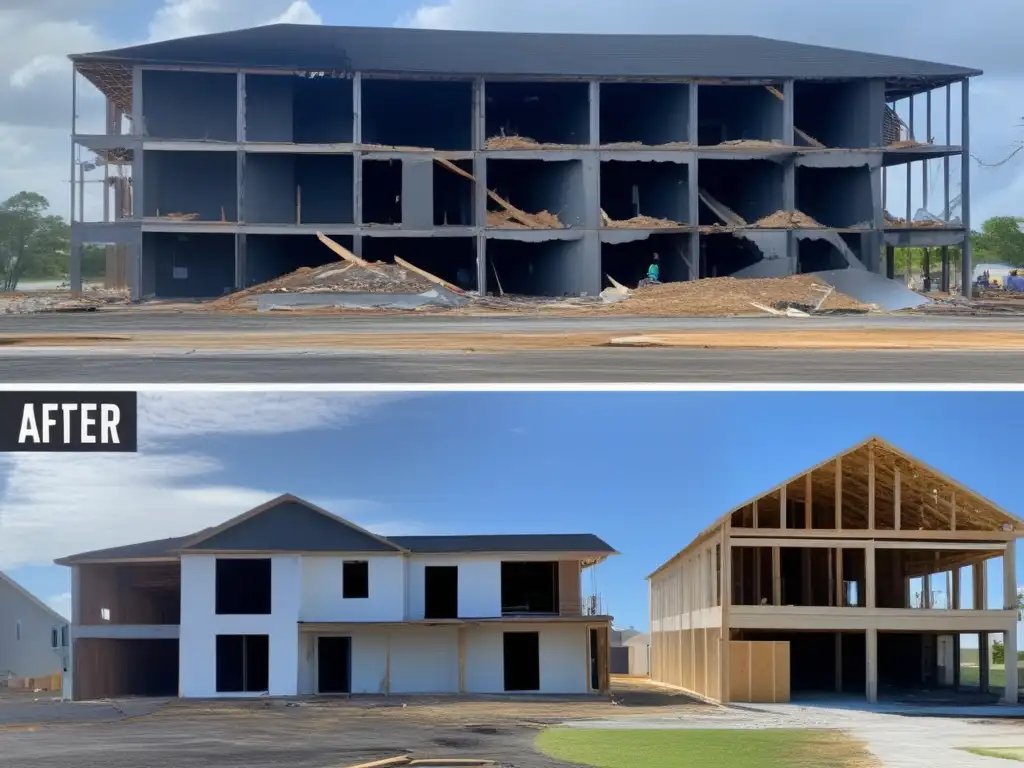The Importance Of Self-Care In Post-Hurricane Recovery

The Importance of Self-Care in Post-Hurricane Recovery
Introduction
When a hurricane strikes, it can be devastating to those in its path. In addition to the physical damages caused by high winds and flooding, hurricanes can also have a lasting impact on mental health and well-being. The aftermath of a hurricane can be a challenging time as individuals and communities work to recover. One critical aspect of this recovery is practicing self-care. This article will explore the importance of self-care in post-hurricane recovery and provide practical guidance on how to implement it effectively.
The Emotional Impact of Hurricanes

Post-Traumatic Stress Disorder (PTSD)
Experiencing a hurricane can be a traumatic event that affects mental health long after the storm has passed. PTSD is common among those who have gone through a hurricane, which can cause intrusive thoughts, emotional distress, flashbacks, and avoidance behaviors that can hinder the recovery process. Those with PTSD may struggle with sleeping, anxiety, or depression. If these symptoms persist, seeking professional help may be necessary to manage the condition.
Grief and Loss
Hurricanes leave behind a trail of destruction, including property damage, lost possessions, and loss of life. Grieving for what has been lost is an essential part of the healing process, but it can be challenging to go through without support. Recognize the feelings associated with loss and seek opportunities to connect with others who have been affected by the same storm. Grieving is a reminder that you are human and need to care for yourself during this difficult time.
Stress and Anxiety
The chaos following a hurricane can induce stress and anxiety. Displaced families, power outages, limited access to supplies, and disrupted routines can be overwhelming. However, it is essential to find ways to manage stress and anxiety effectively to maintain mental and physical health during post-hurricane recovery.
Self-Care Practices

Connect with Others
Connecting with others who have experienced similar situations can be helpful in managing emotions and feelings of isolation. Joining a support group or attending a counseling session could help individuals understand that they are not alone and allow them to gain support from others.
Maintain a Routine
A routine can provide a sense of normalcy during the chaos of post-hurricane recovery. By establishing a plan for yourself, you are taking control of your life. A routine can include sleeping and waking up at regular times, eating healthy meals, and engaging in activities that promote relaxation and enjoyment. Set achievable goals for each day and celebrate your progress throughout the recovery process.
Exercise
Physical exercise is proven to improve mental health by lowering anxiety and depression levels. Exercise can also provide an outlet for stress and help improve overall mood. Engage in low-impact activities like walking, jogging, and stretching that will keep your body moving and can be done indoors or outdoors depending on the weather conditions.
Caring for Children After a Hurricane

Keep Communication Open
Children can have an even harder time dealing with the aftermath of a hurricane. They may feel afraid or confused about what has happened to their home or their community. It is essential to keep communication open with children, ensuring that they feel safe and supported. Answer their questions in age-appropriate ways and provide opportunities for them to express their feelings.
Create a Safe Space
After a hurricane, it is critical to create a safe space for children. This may involve providing emotional support, establishing routines, and making sure they have access to food, water, and basic needs. Having comforting items readily available, such as blankets, pillows, or stuffed animals, can provide children with a sense of security during this difficult time.
Monitor Media Exposure
It is vital to monitor children's media exposure after a hurricane. Repeatedly seeing images of destruction and trauma can harm a child's mental health and well-being. It is best to limit their exposure to media or ensure that they are accessing age-appropriate content.
Frequently Asked Questions

-
How long can PTSD last after a hurricane?
PTSD can last for several months or years following a hurricane. It is essential to seek professional help if you exhibit symptoms of PTSD.
-
What should I do if I am experiencing anxiety and depression after a hurricane?
If feelings of anxiety and depression persist, it is essential to seek professional help. There are counseling services available, and a doctor may prescribe medication if necessary.
-
What are some potential physical health problems after a hurricane?
After a hurricane, individuals may experience physical health problems such as dehydration, infections, or injuries. It is important to seek medical attention if necessary.
-
How can I maintain my mental health during post-hurricane recovery?
Maintaining mental health during post-hurricane recovery involves practicing effective self-care techniques such as exercise, maintaining a routine, and staying connected with others.
-
What should I do if I am struggling to get back to a normal routine?
It is essential to be patient with yourself during the recovery process. Start by setting small, achievable goals and celebrate progress as you go. If necessary, consider seeking professional help.
Conclusion
Self-care is crucial during post-hurricane recovery. Practicing techniques to manage mental health can lead to a quicker and more effective recovery. Connecting with others, maintaining routines, exercising, creating safe spaces for children, and limiting media exposure are all practical steps to take during the recovery process. Remember, it is essential to take care of yourself both physically and mentally after a hurricane.
This article provided information that is relevant and valuable to those living in hurricane-prone areas and the general public. Engaging in effective self-care techniques can benefit all individuals even outside of hurricane recovery. Take the time to care for yourself, seek help when necessary, and remember that recovery takes time.
Thank you for reading and please leave your comments below to continue the conversation.
Additional Resources

- National Institute of Mental Health - PTSD
- Centers for Disease Control and Prevention - Coping with Stress After a Disaster
- American Red Cross - Recovering Emotionally
 The Road To Normalcy: Establishing Routines After A Hurricane
The Road To Normalcy: Establishing Routines After A Hurricane Replanting Your Garden After A Hurricane
Replanting Your Garden After A Hurricane Reopening Your Business After A Hurricane
Reopening Your Business After A HurricaneIf you want to discover more articles similar to The Importance Of Self-Care In Post-Hurricane Recovery, you can visit the Hurricane recovery: category.
Leave a Reply

Articulos relacionados: